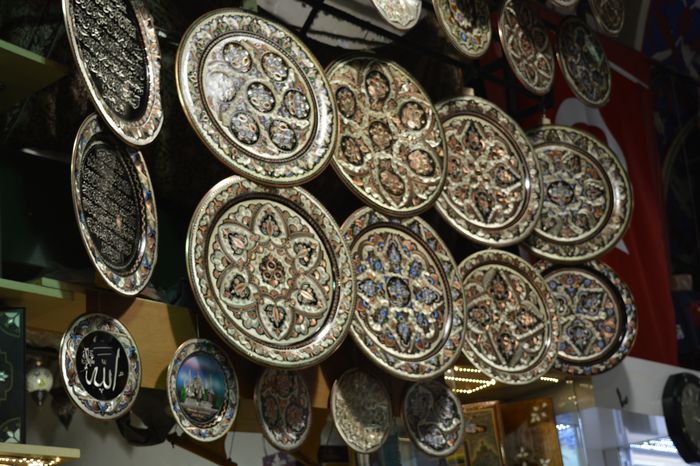How a Minister’s Son Exposed the Sultan
A Family Legacy of Power and Influence
Gorges Dorys, the author who dared to expose the Sultan’s private life, was not an ordinary outsider looking in. He came from the very heart of Ottoman power and privilege. His father, Adossides Pasha, had been one of the Sultan’s most important ministers and trusted officials. This family background gave Dorys unprecedented access to the inner workings of the Ottoman court.
Adossides Pasha was a distinguished and highly influential man who had held some of the most important positions in the Ottoman Empire. He had served as governor of Crete, one of the empire’s most challenging and strategically important territories. Managing Crete required exceptional diplomatic and administrative skills, as the island had a history of rebellion and unrest General Grant’s Lasting Legacy and the Hidden World of the Ottoman Harem.
After his successful tenure in Crete, Adossides Pasha was promoted to an even more prestigious position as prince of Samos. This role was considered one of the highest honors in the Ottoman administrative system. Samos was a semi-autonomous province that required a governor with special skills and the complete trust of the Sultan. Adossides Pasha held this important position until his death, which shows that he maintained the Sultan’s confidence throughout his career.
Growing Up in the Palace
Young Dorys spent his childhood and youth in and around the Yildiz Kiosk, which was the Sultan’s primary residence and the center of Ottoman political power. This palace was where the most important decisions affecting the empire were made, and where the Sultan conducted his daily business. For a child to grow up in this environment was extraordinary and gave him access to secrets that few people ever knew Ephesus Tour Guide.
Living at the Yildiz Kiosk meant that Dorys witnessed the daily operations of the Ottoman court firsthand. He would have seen the constant parade of ministers, generals, foreign ambassadors, and other important figures who came to meet with the Sultan. He observed the ceremonies, the political discussions, and the personal interactions that shaped the empire’s policies.
This unique childhood gave Dorys exceptional opportunities to understand the extraordinary events and strange customs of the Ottoman court. He saw how decisions were made, how the Sultan treated his officials, and how the complex web of palace politics really worked. Most importantly, he witnessed the Sultan’s growing paranoia and the atmosphere of fear that dominated the palace.
A Treasure Trove of Secret Information
When Adossides Pasha died, his son inherited more than just money and property. He also came into possession of his father’s private papers, which contained a wealth of confidential information about the Ottoman court. These documents were incredibly valuable because they provided an insider’s view of events that the general public never knew about.
Much of the material that Dorys used in his controversial book reportedly came from these private papers. His father, as a trusted minister, would have had access to classified information, secret discussions, and confidential correspondence. He might have kept detailed notes about palace intrigue, the Sultan’s personal habits, and the real reasons behind important political decisions.
These papers probably contained information about the Sultan’s private life, his relationships with his ministers, and the methods he used to control his government. They might have included details about the secret police network, the system of spies and informants, and the way the Sultan treated people who fell from his favor.
Professional Training as a Journalist
Dorys’s background as a palace insider was complemented by his professional experience as a journalist. He worked as a correspondent for the London Times at Constantinople for two or three years, which was one of the most prestigious journalism positions available. The Times was considered the most important newspaper in the English-speaking world, and its correspondents were expected to maintain the highest standards of reporting.
This job gave Dorys extensive experience in researching and writing about political conditions in the Ottoman Empire. He learned how to gather information, verify facts, and present complex political situations in a way that readers could understand. His work for the Times also gave him contacts throughout the diplomatic community and access to additional sources of information.
As a foreign correspondent, Dorys had to understand not just what was happening in Ottoman politics, but also how these events affected international relations. He needed to explain Ottoman policies to British readers and help them understand the significance of developments in the empire. This experience made him particularly well-qualified to write a book that would appeal to European audiences.
The Perfect Combination of Access and Skill
The combination of Dorys’s palace background and his journalism experience made him uniquely qualified to write about the Sultan’s private life. He had the insider knowledge that came from growing up in the palace, the documentary evidence provided by his father’s papers, and the professional skills needed to present this information in a compelling way.
Few people in the world had such a combination of access to sensitive information and the ability to communicate it effectively. Most palace insiders lacked the writing skills and outside perspective needed to create a book that would interest international readers. Most journalists lacked the deep insider knowledge that could only come from years of palace life.
However, this perfect combination of qualifications also created a perfect storm of controversy. The Sultan and his court were particularly outraged because they knew that Dorys’s information was likely to be accurate. They could not dismiss his book as the fantasy of an outsider or the speculation of a foreign journalist.
The Problem of Personal Bias
Despite his exceptional qualifications, Dorys’s book was not without its flaws. According to critics, he was unable to suppress his personal prejudices when writing about the Sultan. This bias may have come from several sources: disappointment over his father’s treatment, anger about his own forced exile, or simply a natural tendency to focus on negative rather than positive aspects of the Sultan’s character.
The criticism suggests that Dorys did not give the Sultan credit for his few virtues or positive qualities. This one-sided approach may have made his book more sensational and entertaining, but it also made it less fair and balanced. A more objective treatment might have been more credible and harder for the Sultan’s supporters to dismiss.
This bias was understandable given Dorys’s personal situation. He had been forced into permanent exile and sentenced to death for writing his book. Under these circumstances, it would have been difficult for any author to maintain complete objectivity about the person who had ruined his life.
A Divided Reception
The response to Dorys’s book among people in Turkey was sharply divided, reflecting the complex political situation in the Ottoman Empire. Some readers believed that the book was accurate and fair in its portrayal of the Sultan and his court. These people probably included others who had witnessed similar events or who had their own reasons to be critical of the Sultan’s rule.
Other readers accused Dorys of being motivated by personal spite rather than a genuine desire to inform the public. These critics suggested that his book was more about revenge than about truth-telling. They argued that his personal grievances against the Sultan had colored his judgment and made him present a distorted picture of palace life.
This division in public opinion was typical of the Ottoman Empire at this time. The Sultan’s rule was becoming increasingly unpopular, but he still had supporters who defended him against criticism. The debate over Dorys’s book reflected broader disagreements about the Sultan’s leadership and the direction of the empire.
An Unprecedented Level of Royal Rage
Regardless of whether people agreed with Dorys’s portrayal of the Sultan, everyone agreed that his book had achieved something remarkable: it had stirred up the Sultan and his court to a degree of indignation that had not been seen for many years. This reaction was significant because the Sultan was known for his paranoia and sensitivity to criticism.
The intensity of the Sultan’s anger suggests that Dorys had hit very close to home with his revelations. If the book had been filled with obvious lies or exaggerations, the Sultan might have been able to dismiss it more easily. The fact that it caused such an extreme reaction indicates that much of what Dorys wrote was probably true.
The unprecedented level of royal rage also shows how effective Dorys’s book was in damaging the Sultan’s reputation. The combination of insider knowledge, professional writing skills, and wide international distribution had created exactly the kind of publicity nightmare that the Sultan feared most.
The Legacy of a Dangerous Book
Dorys’s book represents a turning point in how information about rulers could be controlled and disseminated. His unique background as both a palace insider and a professional journalist allowed him to create a work that was both credible and widely accessible. The international publication of his book showed that even the most powerful rulers could no longer completely control their public image.
The controversy surrounding the book also highlighted the growing tension between traditional royal secrecy and modern demands for transparency. Dorys’s willingness to risk everything to tell his story, and the international interest in reading it, reflected changing attitudes about the public’s right to know about their rulers’ private lives.
While Dorys paid a heavy price for his courage, his book achieved its goal of exposing the Sultan’s character and methods to the world. The extreme reaction it provoked from the Ottoman court proved that the truth can be more powerful than any weapon when it falls into the right hands.







